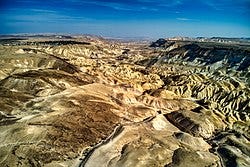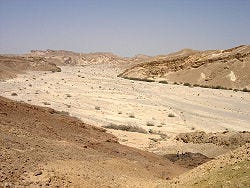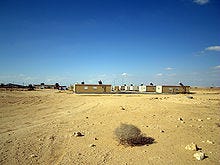The Kushner Solution: Genocide As A Real Estate Development Opportunity
March 20 | Posted by mrossol | Business, Incentives, IsraelInteresting perspective [the author’s, not necessarily Kushner’s]. mrossol
Source: The Kushner Solution: Genocide As A Real Estate Development Opportunity
|
When you [only] have a hammer, everything looks like a nail, right? Jared Kushner does real estate deals. He doesn’t actually say he’d like to get in on the ground floor, but …
Kushner Pitches Moving Palestinians Out of Gaza’s ‘Valuable’ Waterfront
During an interview with Tarek Masoud, the faculty chair of Harvard’s Middle East Initiative, Kushner proposed moving Palestinians to Israel’s arid desert region to “clean up” Gaza’s “valuable” waterfront.
“Gaza’s waterfront property could be very valuable to—if people would focus on building up livelihoods,” Kushner said, without clarifying who exactly would profit off such a project. He added that the area could’ve had great potential if “all the money” in Gaza had gone into “education and innovation,” instead of its tunnel network and munitions.
Interestingly, there used to be universities and hospitals in Gaza. Somebody bombed them.
Kushner suggested displacing the remaining Palestinians from the “valuable” waterfront, and dropping them in the Negev desert.
“I would just bulldoze something in the Negev, I would try to move people in there, I know that that won’t be the popular thing to do, but I think that that’s a better option to do, so that you can go in and finish the job,” he said. The Jewish Virtual Library describes the Negev as “oppressively hot” and “filled more with dirt, rocks and canyons, which are no less forbidding” than sand dunes.
What’s not to like?
Kushner claims that his idea was simply his own brainstorm, not that of any Israeli official:
“I’m sitting in Miami Beach right now, and I’m looking at the situation and I’m thinking: what would I do if I was there?” Kushner said.
Judge Nap claims, and I do regard him as a reliable source, that Israeli real estate developers have been visiting synagogues in New Jersey, flogging real estate investment opportunities in Gaza—for Jews only, which apparently violates NJ laws. So, maybe Kushner’s idea wasn’t really original with him.
Personally, if I were a Dem I’d have paid good money to get Kushner to say these things publicly.
Speaking of investments, John Helmer follows the diamond markets. This is far too arcane for me, but I have referenced Helmer’s reporting on this in the past. Today Helmer has a fascinating post on the latest developments in Western attempts to target the Russian diamond industry—it’s all connected with the American war on the world, although it gets little attention:
WHEN IT COMES TO FIGHTING RUSSIAN DIAMONDS, THE JEWISH DIAMOND TRADE AND DE BEERS ARE A BUSTED FLUSH
The basic idea behind this complex article is that the US is trying to sanction the Russian diamond industry. My understanding is that Russia is the world’s biggest diamond producer in terms of total carats, while Botswana—owned by De Beers—is the biggest producer in terms of total value. The US and Israel have twisted arms and New York and Tel Aviv are on board with the sanctions scheme. Antwerp is going along, but reluctantly:
On March 1, after heavy lobbying by Israeli and American diamantaires – and despite resistance from the Belgian businesses – new restrictions were imposed with the aim of driving Russian diamonds – rough and polished – out of the major jewellery markets of Europe and the US. The new scheme has a catch, however. It is now the US Customs Service with whom diamond buyers and traders must shake hands.
…
Martin Rapaport, a Tel Aviv-New York diamond trader and publisher of an industry bible called Rapaport.com, has published a warning that the new system is not only an unenforceable mazal-bracha system, but it is also a devious scheme to channel diamond certification through loopholes in Antwerp, at the expense of alternative, stricter channels in Tel Aviv and New York; and also to favour the Anglo-South African De Beers diamond group over the Russian rival miner Alrosa and other diamond miners in Africa.
What got my attention was the list of people who were lining up on Russia’s side. Hong Kong and India are also big centers of the diamond trade, and Dubai (UAE, but run by Indians) is a very major player. There are also some other African producing countries, like Angola, that are on the Russian side. The question is, will the diamond sanctions be as effective as the oil and gas sanctions have been? In the big scheme of things, it may not matter that much. While Russia is a huge diamond producer, diamonds are only about 1% of its exports by value. Still, for Dubai—now a BRICS member—this is a big deal. Also, African nations are increasingly averse to being cheated by Western interests, and so are resistant to these schemes. All this has geopolitical implications. For example, is it possible that these matters somehow played into the UAE announcement that it might cut off the land bridge from the Persian Gulf to Israel? In the end, I’m betting on the Russians to come out OK. They do diplomacy and the rest of the world seems to prefer that to arm twisting and threats.
Meaning In History is free today. But if you enjoyed this post, you can tell Meaning In History that their writing is valuable by pledging a future subscription. You won’t be charged unless they enable payments.








Leave a Reply
You must be logged in to post a comment.